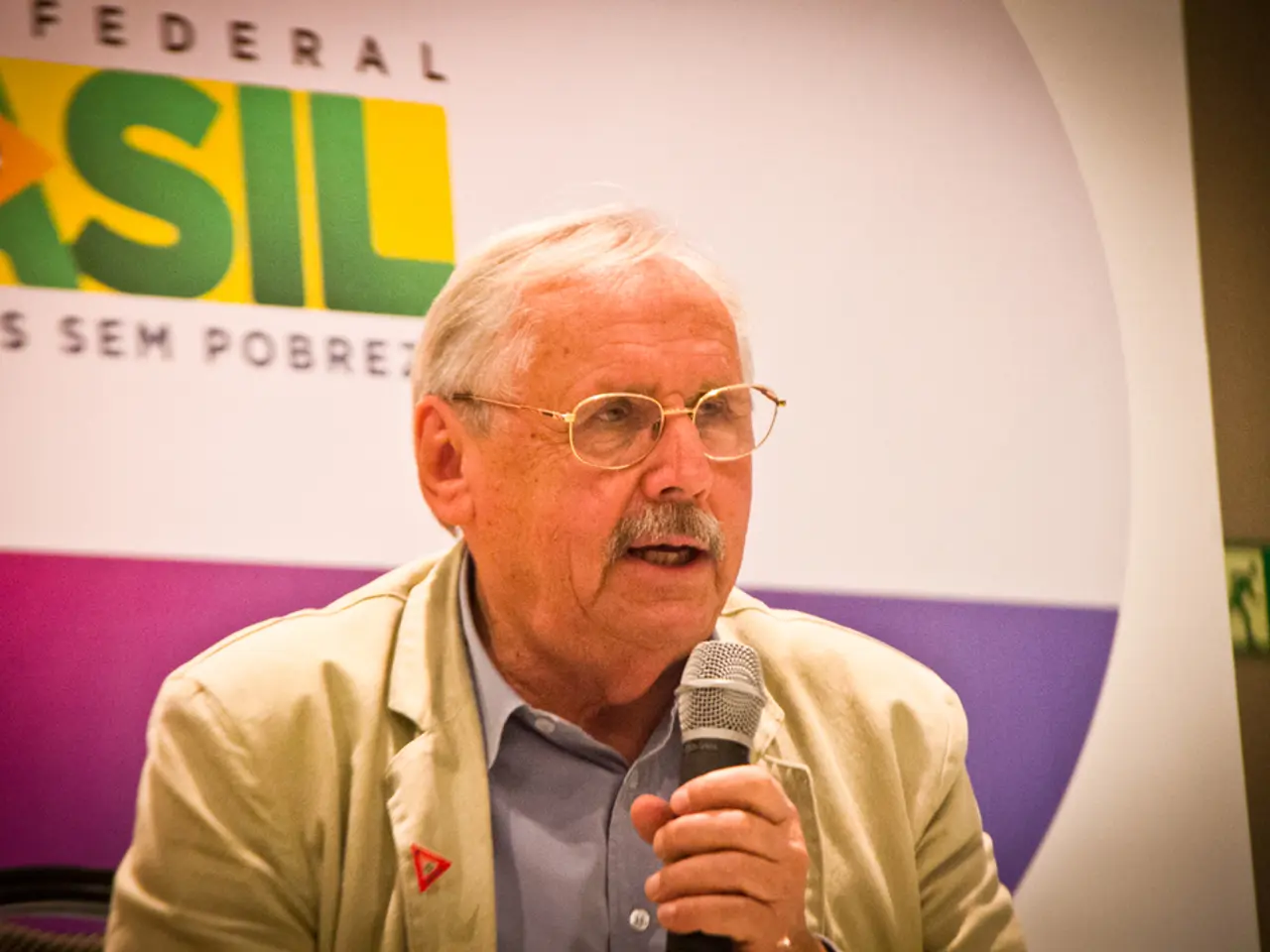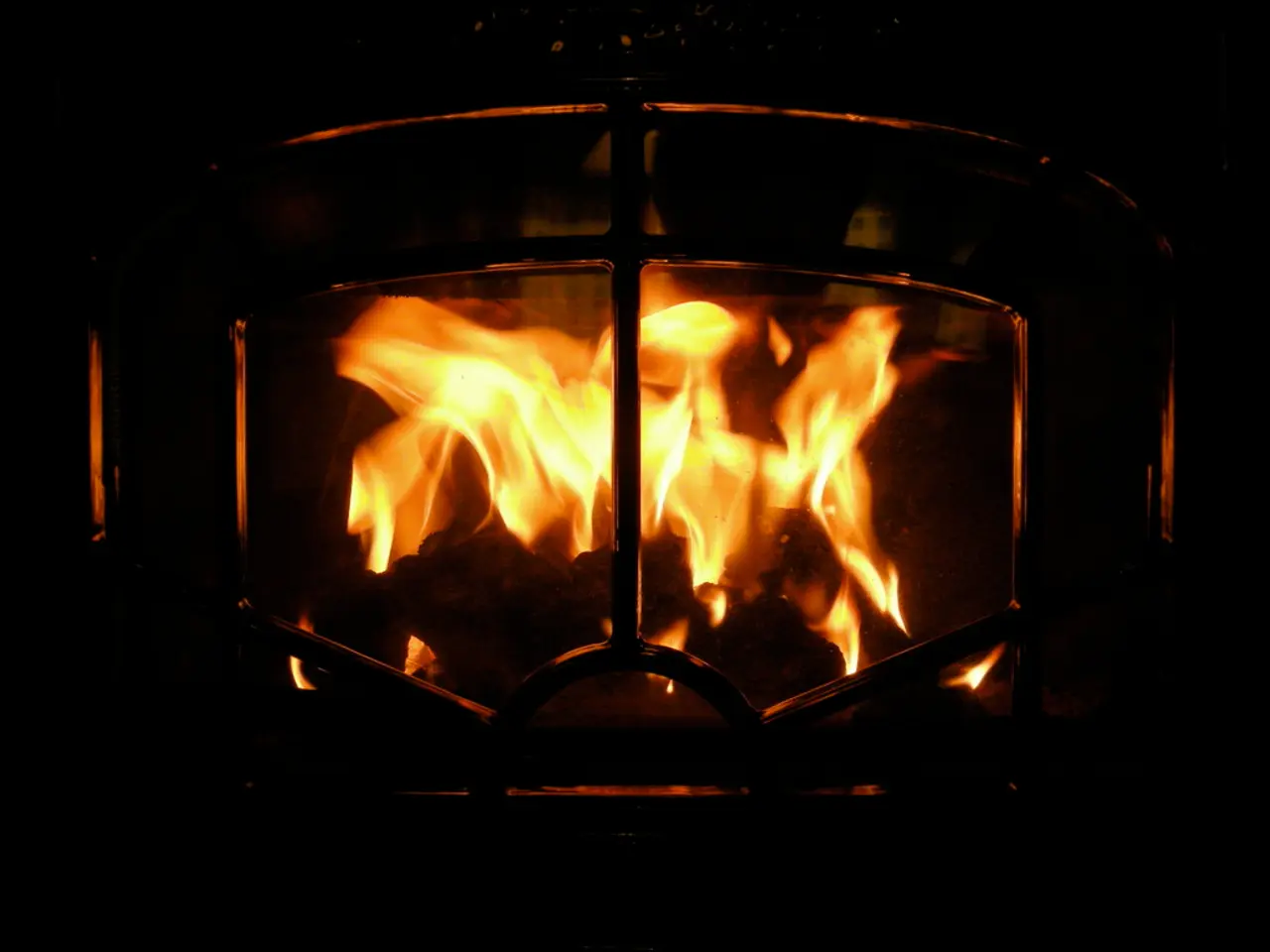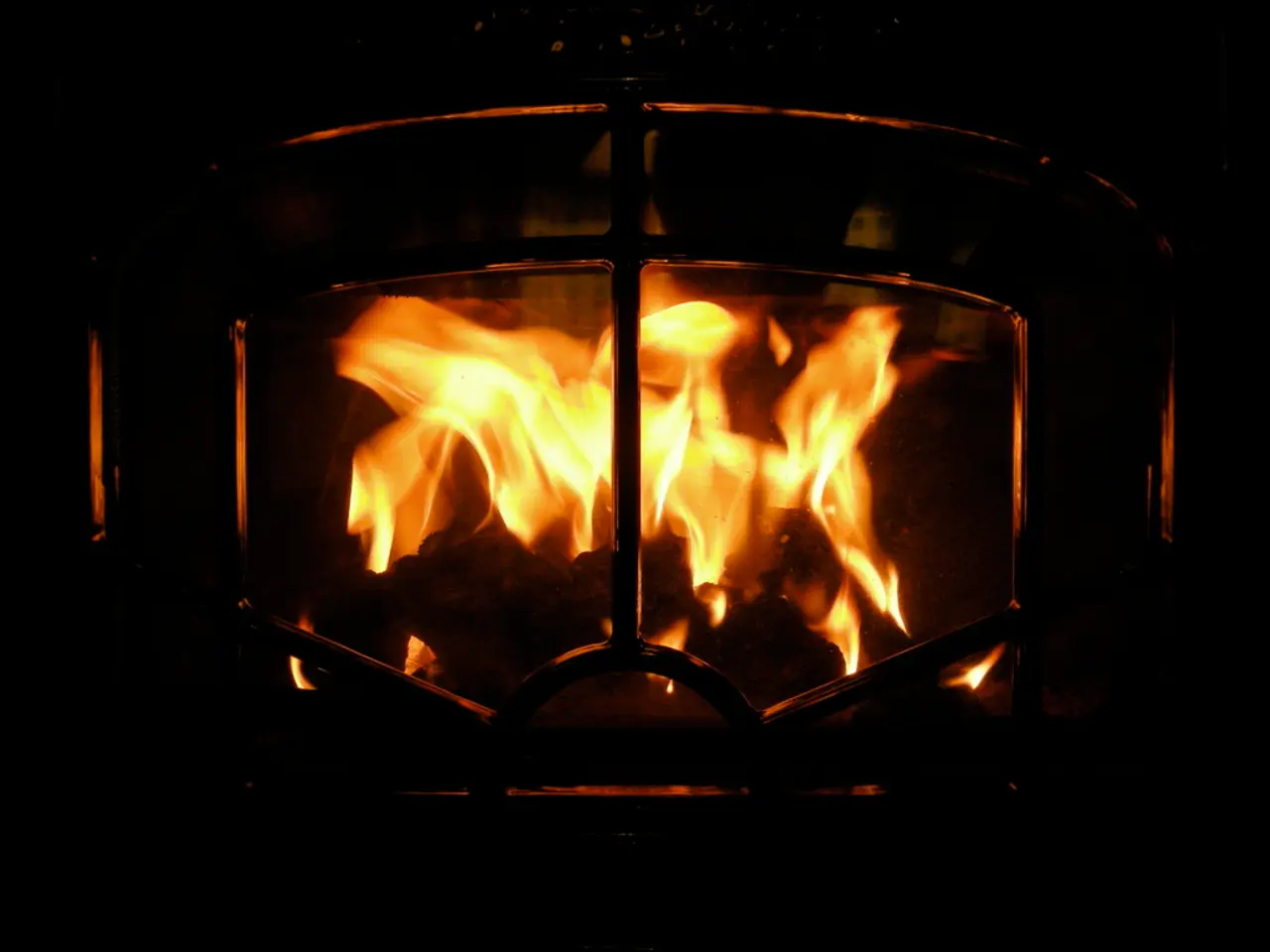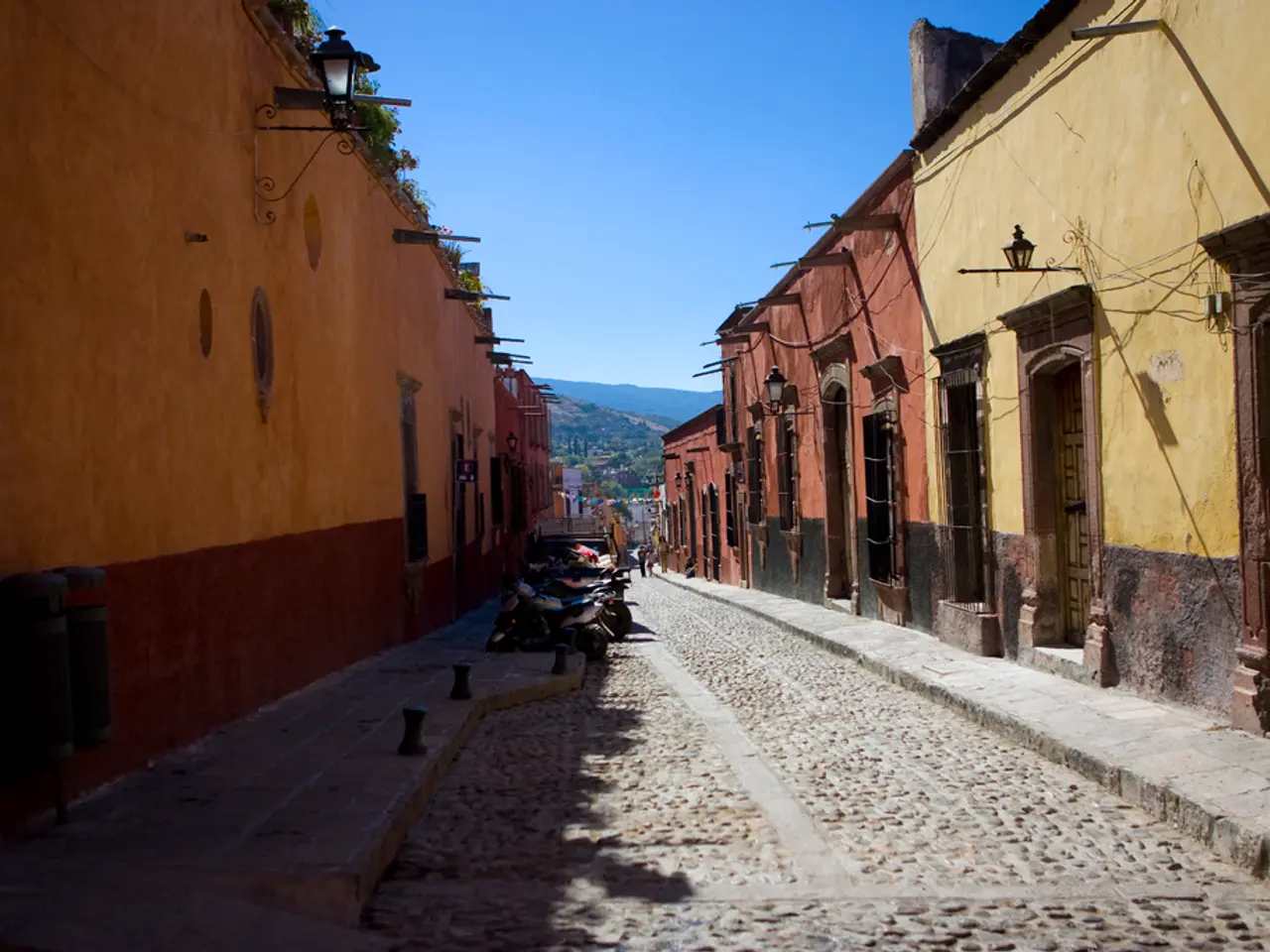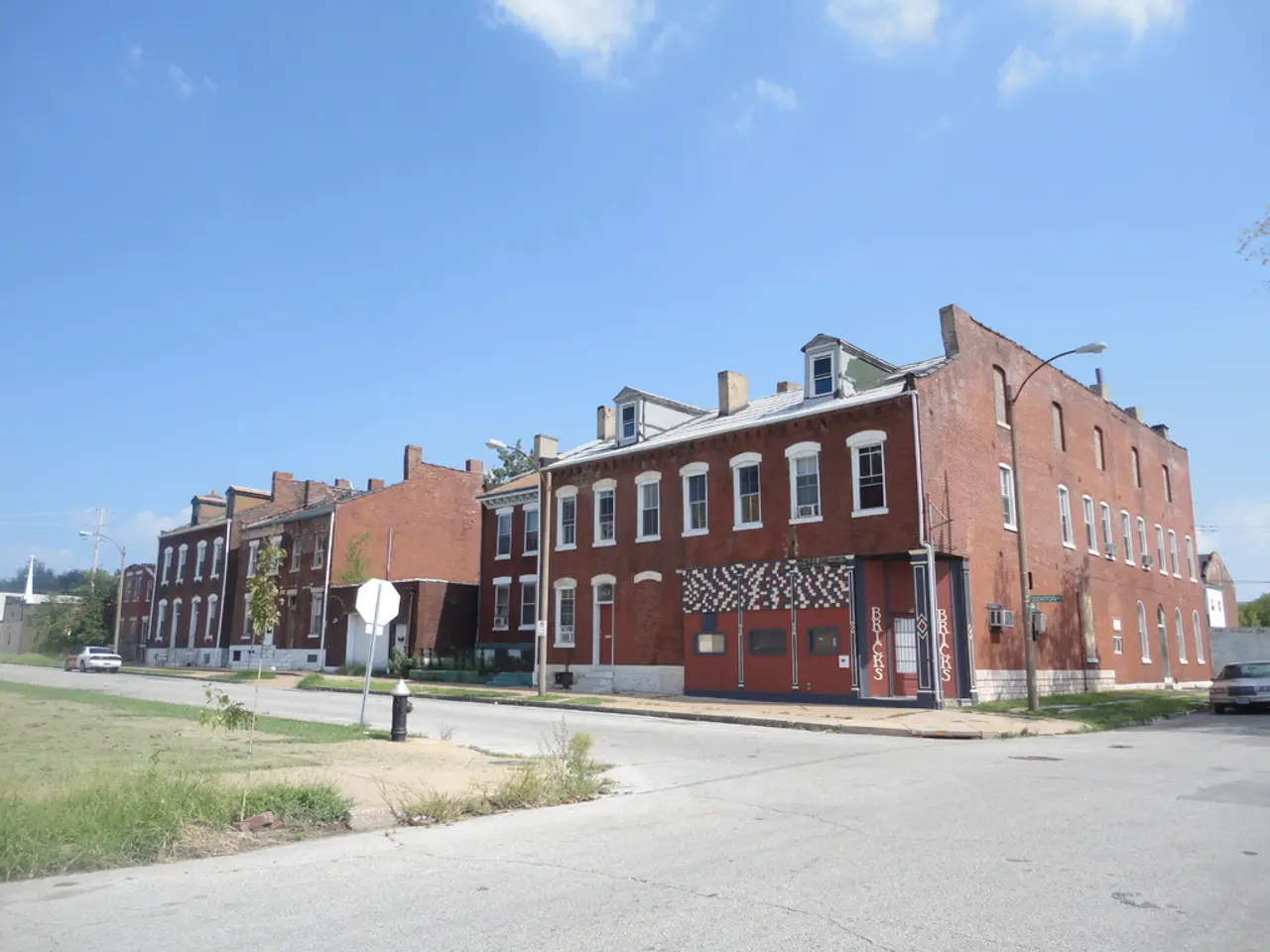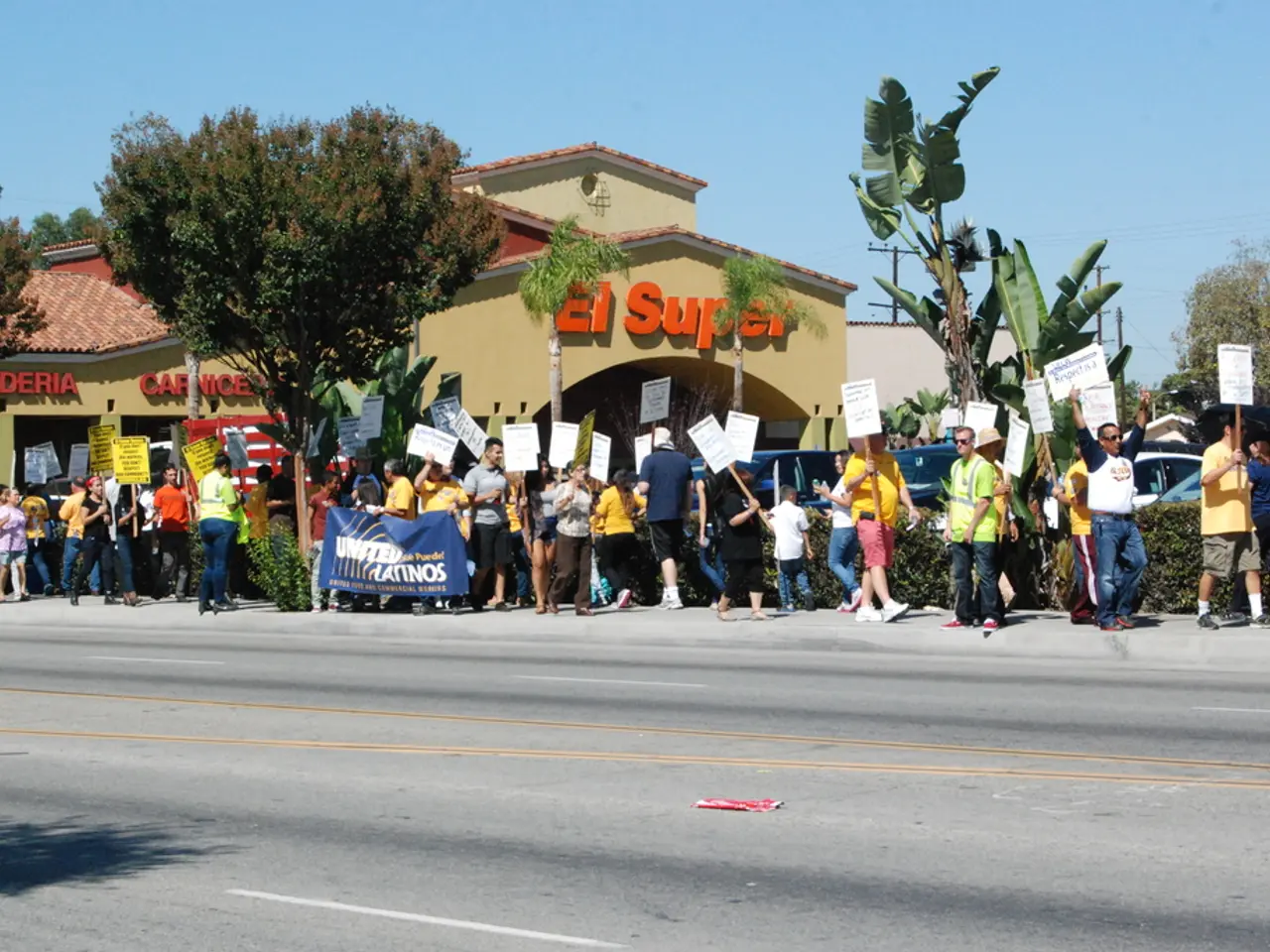White House announces envoy Witkoff's entry into Gaza to review the distribution of humanitarian aid.
In the ongoing conflict between Israel and Hamas in Gaza, the ceasefire negotiations have hit a roadblock. Hamas has explicitly refused to re-enter negotiations until the humanitarian situation and aid delivery in Gaza improve significantly [1][2].
This impasse has led Israeli and US officials, including US President Donald Trump's Middle East envoy Steve Witkoff and Israeli Prime Minister Benjamin Netanyahu, to revise the negotiation framework towards a comprehensive deal. This new framework would seek the release of all hostages, full disarmament of Hamas, and long-term demilitarization of Gaza [2][3].
Humanitarian aid efforts for Palestinian civilians are expected to intensify despite ongoing Israeli military operations in Gaza. Steve Witkoff is actively engaged in the region, including visits to aid centers. However, the deadlock in talks and Hamas's refusal to negotiate under current conditions have caused concerns in Israel about possibly escalating military actions to pressure Hamas [2][3].
The number of Palestinians killed in almost two years of war has passed 60,000 this week. A global hunger monitor has warned that famine is unfolding in Gaza, and since the war began, the Gaza health ministry has recorded 156 deaths from starvation and malnutrition, most of them in recent weeks [1].
Previous ceasefire proposals, such as those from early 2025 involving Qatar, Egypt, and the US, aimed at a temporary ceasefire with phased hostage releases and aid delivery, have not fully resolved the core political and security issues. Additionally, the Trump administration's role is seen as limited in coordinating the various stakeholders and international parties required for a longer-term solution [1].
Mike Huckabee, the US ambassador to Israel, is not mentioned in the current updates, with the main US diplomatic role being carried out by Trump's envoy Steve Witkoff. Based on available information, the ceasefire negotiations remain fragile, aid distribution is increasing but insufficient according to Hamas, and a final status agreement remains elusive [2][3].
Key points:
- Ceasefire Negotiations: At deadlock; Hamas refuses talks until humanitarian aid improves.
- Aid Distribution: Being increased by Israel and US amid ongoing conflict, but viewed as inadequate by Hamas.
- Negotiation Framework: Shift toward demanding full hostage release, Hamas disarmament, and Gaza demilitarization.
- US Role: Steve Witkoff actively mediating; Trump’s administration less engaged in broad stakeholder coordination.
- Possible Military Escalation: Israeli government may escalate to press Hamas if talks do not progress.
- Mike Huckabee’s role: No recent information on involvement in this process.
This summary reflects the situation as of August 1, 2025, based on recent reports from Caliber.Az, The Jerusalem Post, and the Baker Institute [1][2][3][4].
Qatar and Egypt, who are mediating the ceasefire efforts, backed a declaration by France and Saudi Arabia which outlines steps for a two-state solution to the Israeli-Palestinian conflict. The declaration says Hamas "must end its rule in Gaza and hand over its weapons to the Palestinian Authority". Israel has ruled out the PA gaining control of Gaza [1].
[1] The Jerusalem Post. (2025, August 1). Gaza ceasefire talks at deadlock as Hamas refuses to negotiate. Retrieved from https://www.jpost.com/middle-east/gaza-ceasefire-talks-at-deadlock-as-hamas-refuses-to-negotiate-682520
[2] Caliber.Az. (2025, August 1). Gaza: The Humanitarian Crisis and the Quest for Peace. Retrieved from https://caliber.az/gaza-the-humanitarian-crisis-and-the-quest-for-peace/
[3] Baker Institute. (2025, August 1). The Gaza Crisis: A Comprehensive Analysis. Retrieved from https://bakerinstitute.org/research/the-gaza-crisis-a-comprehensive-analysis/
[4] Al Jazeera. (2025, August 1). Qatar and Egypt back French-Saudi declaration on Israeli-Palestinian peace. Retrieved from https://www.aljazeera.com/news/2025/8/1/qatar-and-egypt-back-french-saudi-declaration-on-israeli-palestinian-peace
- The deadlock in ceasefire negotiations between Israel and Hamas, according to recent reports, stems from Hamas's refusal to negotiate until the humanitarian situation and aid delivery in Gaza improve significantly.
- Despite increased aid distribution by Israel and the US amid ongoing war-and-conflicts in Gaza, it is viewed as inadequate by Hamas, causing concerns in Israel about possibly escalating politics and military actions to pressure the organization.
